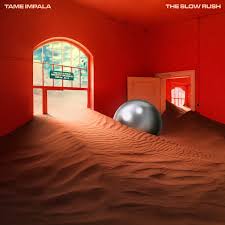NICK CAVE AND THE BAD SEEDS - Let Love In / Murder Ballads / The Boatman's Call / No More Shall We Part (reissues)
 Wednesday, May 25, 2011 at 11:00AM
Wednesday, May 25, 2011 at 11:00AM 



With the latest four reissues of Nick Cave and the Bad Seeds, Mute puts the finishing touches on making their complete studio discography available to the masses. This is also probably the best entry point for anyone looking to get a firm grasp on their music. While their mid-'80s efforts might be too muddy or offputting for casual listeners, the combination of clean production and the trail set from Henry’s Dream and The Good Son (reissued last year) led to these next four albums, each critically acclaimed and containing some well-known duets, as well as staple tracks of their catalogue that you would recognize without even knowing it.
The beauty of these four albums is that they can be broken into two groups. Let Love In and Murder Ballads contain a healthy mix of brooding and sinister songs that build with an almost quiet intensity or just go for broke with a frenzy of noisy rock. While the lyrical content on Murder Ballads is self-explanatory, the lyrical content of Let Love In feels just as seedy, but with a touch more of lost love and songs rooted in self-deprecation (best shown with the bookending "Do You Love Me" parts one and two, and "Let Love In"). Not to be ignored are the two character pieces, "Loverman" and "Red Right Hand". These songs are essential to the feel of the album, giving us some of its loudest and quietest moments without ever losing their ferocity. Let Love In was their first album that really reached a large North American audience: "Loverman" was covered by Metallica, while "Red Right Hand" has the distinct honour of being used in both an X-Files episode and Dumb and Dumber.
While Murder Ballads shares tight production with its precursor, the overall sound is more in tune with Henry’s Dream, its approach being more acoustic and almost stripped down. This is the first and only album of Nick Cave’s to sport a "Parental Advisory" logo, though it has been removed for this reissue; let that set the tone for this macabre album. The songs range from almost tender and loving (most notably the duets with PJ Harvey and Kylie Minogue) to harsh and graphic ("Stagger Lee"). This album generated a lot of interest and acclaim, especially with the MTV crowd with the video for "Where the Wild Roses Grow." This album feels a little bit like the end of a chapter in the book of the Bad Seeds, but it goes out with a bang.
The album that would follow would surprise listeners. Instead of 52 minutes of songs describing characters from the darkest corners of the planet, we were given a piano-driven album full of soft sad songs full of introspection from the man in control. Using his failed relationships with PJ Harvey and the mother of his first-born son as inspiration and the feelings that came out of this, The Boatman's Call is a record unlike any other he had done at this point. If you take the prettiest parts of The Good Son and the song "Watching Alice" but drastically revamp the lyrical content, you can conjure up an idea of this album. It's hard to determine which songs are about PJ Harvey, but theres no doubt that "Black Hair" and "Green Eyes" are about her. This album is sad and there's no way around that. All you have to do is listen to the third track, "People Ain’t no Good" (or you can watch Shrek 2 and wait to hear it there). We wouldn’t hear again from Cave for four years.
After intense rehab stays for severe alcoholism and heroin addiction (an addiction Cave had gone back to since his days in The Birthday Party), Cave returned in 2001 with No More Shall We Pass. While this album is similar in sound to The Boatman's Call, it's more explorative with gorgeous female background vocals, piano-driven passages that feel more atmospheric, a solid helping of strings, and Cave exploring his vocal range with solid results. Taking all of these elements, it's safe to say that this is probably the prettiest album The Bad Seeds have made to date. While Cave’s lyrical approach still deals with personal loss and heartache, the feel here isn’t as hopeless as it was on his previous release, with bits of hope shining in and out throughout this almost 70-minute album.
Depending on if your musical preference lies in a prettier or noisier realm, with this round of remasters you’re guaranteed to at least an hour or two of top-notch songwriting from someone with severe staying power. Now in 2011, Cave is the only original Bad Seed left in the group due to Mick Harvey’s departure (you can find him on his latest solo album or on PJ Harvey’s latest release). Slowly reaching their 30-year mark, Nick Cave and the Bad Seeds have failed to lose their touch, and you won’t find harder proof than these four new reissues.


Reader Comments